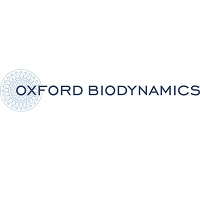Oxford BioDynamics Plc (LON:OBD), a biotechnology company focused on the discovery and development of epigenetic biomarkers based on regulatory genome architecture, for use within the pharmaceutical and biotechnology industry, today announced that it has been selected to present at the China BIO Partnering Forum in Shanghai on 8 May 2019 with a talk by the Company’s Chief Scientific Officer, Dr Alexandre Akoulitchev, entitled “EpiSwitch™ Biomarkers: Practical Applications For Predictive, Prognostic And Diagnostic Patient Stratifications”.
Alexandre Akoulitchev, Chief Scientific Officer, Oxford BioDynamics said:
“We are looking forward to establishing new partnerships for OBD’s EpiSwitch™ technology in China. Our experience includes working with American and European biopharmaceutical partners to enable precision medicine initiatives through the incorporation of our proprietary, epigenetic-based biomarker platform across the research and development value chain. Recent milestones include the co-development of a response biomarker to checkpoint inhibitor therapy in non-small cell lung cancer (NSCLC), a disease subtyping biomarker in diffuse B-cell lymphoma (DLBCL), a response biomarker to first line therapy in rheumatoid arthritis (RA), a disease progression biomarker in amyotrophic lateral sclerosis (ALS), and diagnostic and prognostic biomarkers for non-alcoholic steatohepatitis (NASH). Our partnering models are typically structured as milestone-driven, collaborative R&D and licensing deals and have already attracted significant interest from Chinese Biotech.”
The presentation will focus on validated EpiSwitch™ biomarker applications which have demonstrated high efficacy in predictive, prognostic and diagnostic patient stratifications for lung, haematological, prostate, thyroid and skin cancers. Baseline predictive stratifications by EpiSwitch™ for response to immune-checkpoint inhibitors are excellent surrogates for standard primary endpoints used in clinical trials, such as progression free survival. The company has recently entered into its fifth collaboration agreement for the development of predictive biomarkers for immuno-oncology therapeutics with leading pharmaceutical companies.

